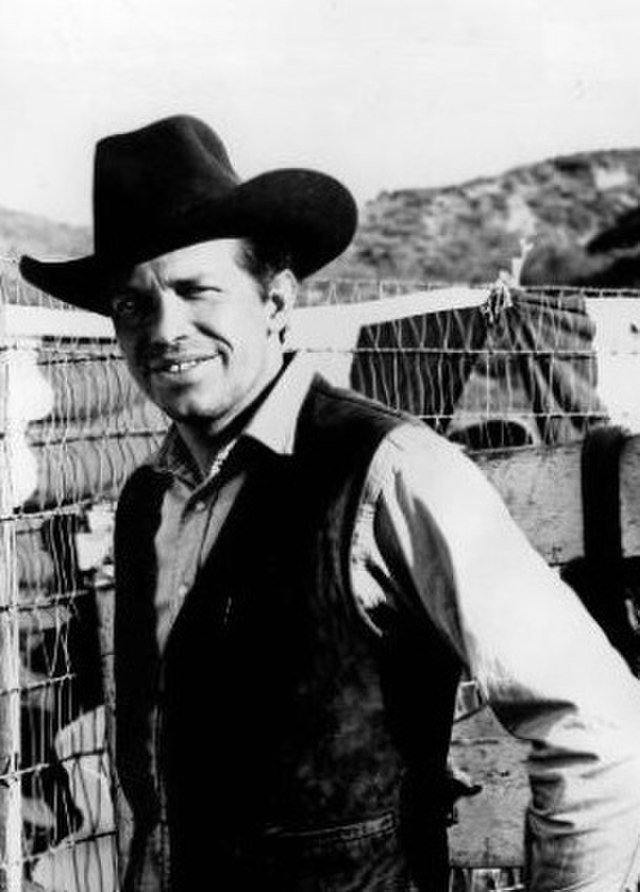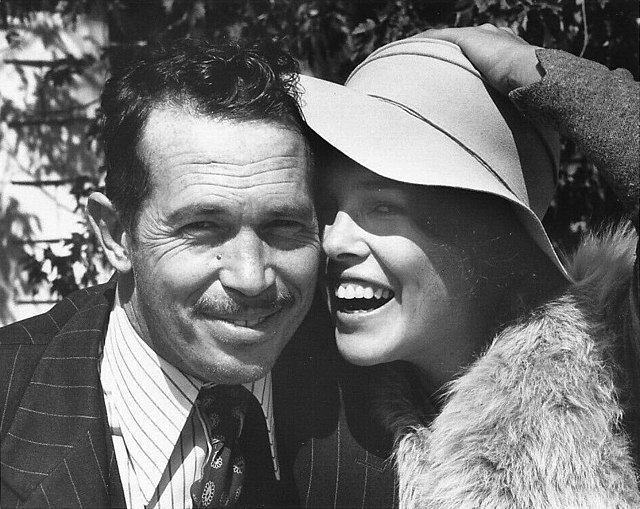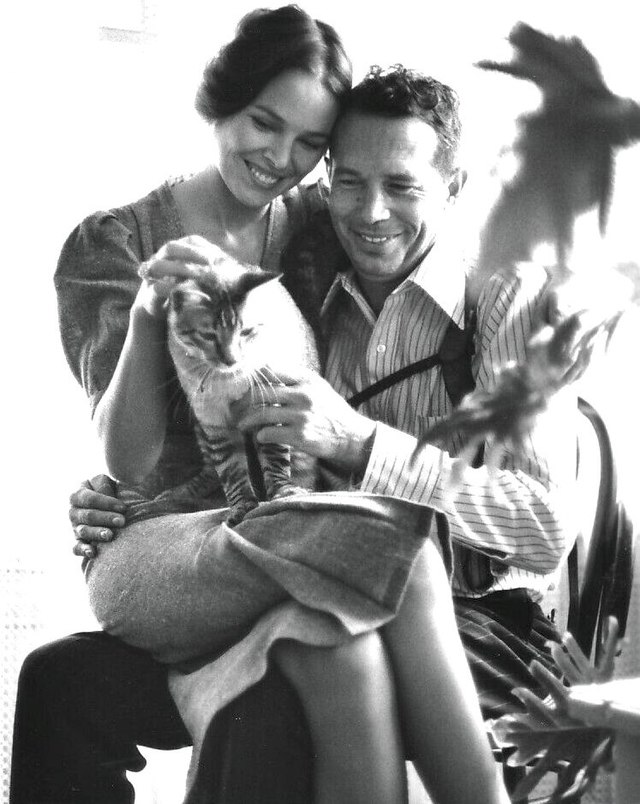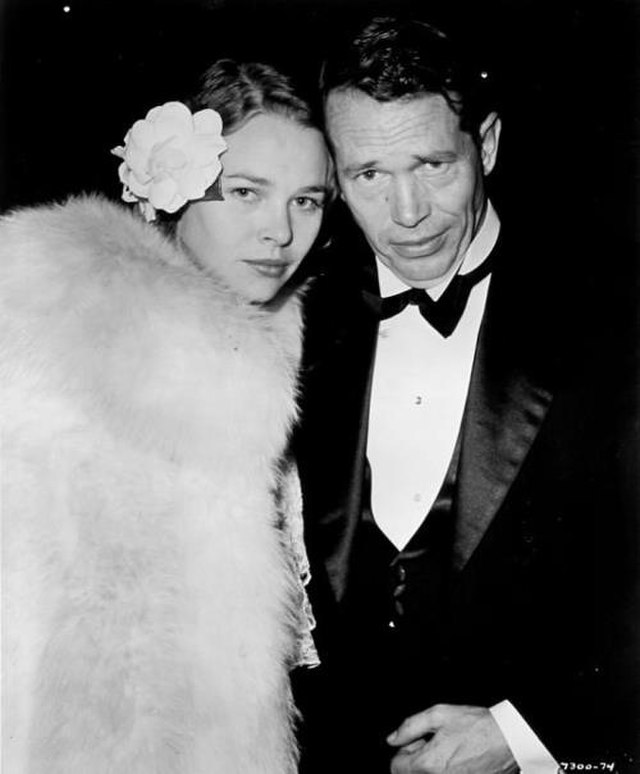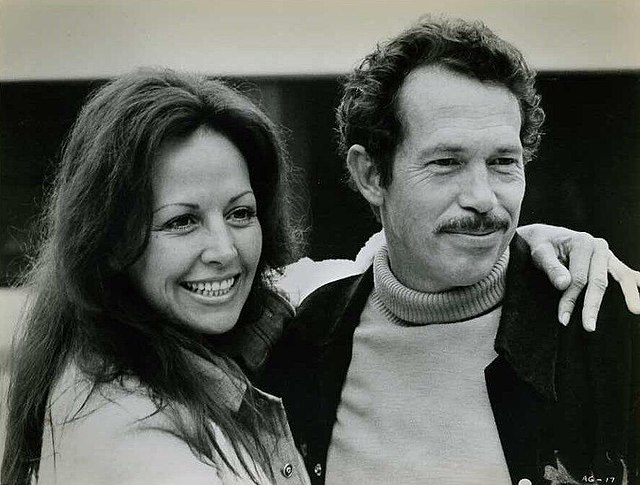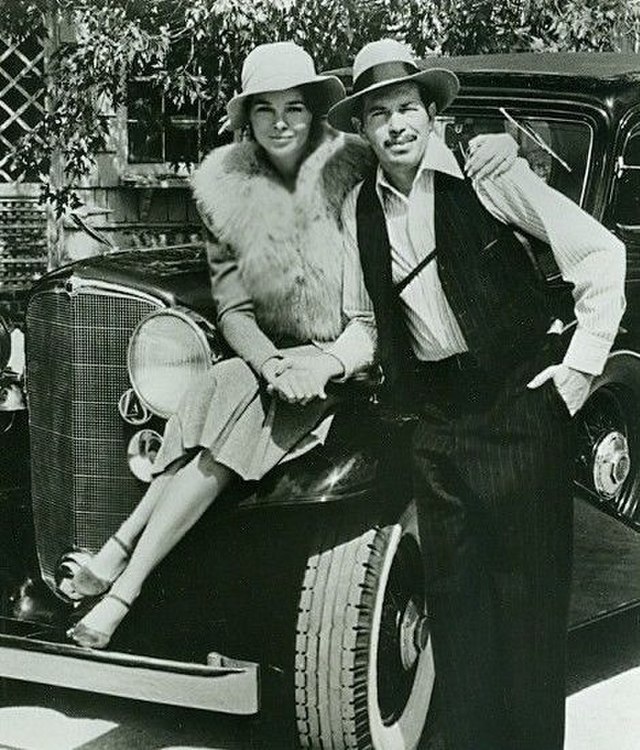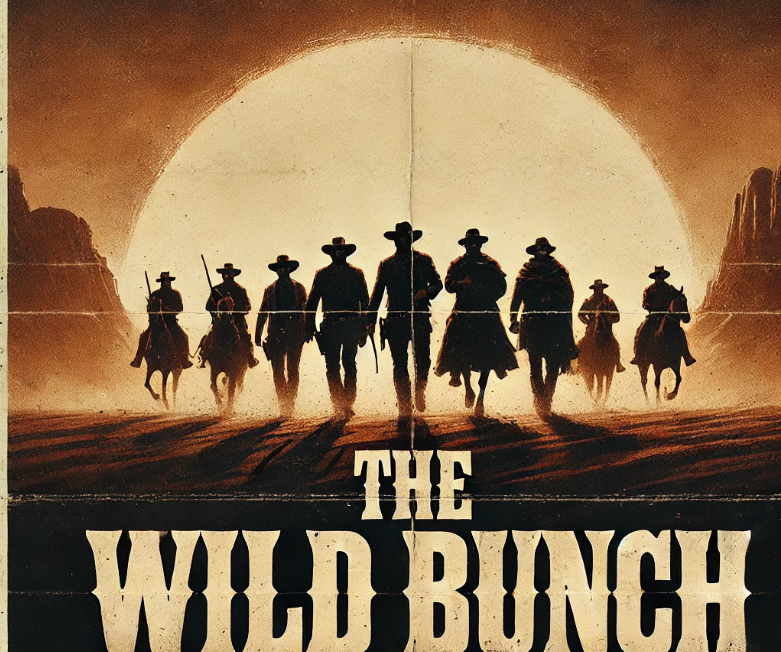Warren Oates (1928 – 1982)
Early Life and Personal Background
Warren Mercer Oates was born on July 5, 1928, in Depoy, Kentucky, a small rural town. Raised during the Great Depression, Oates grew up in a modest household. His father, Bayless E. Oates, was a general store owner, and his mother, Sarah Alice Mercer, was a homemaker. Oates developed a fascination with storytelling and characters early on, inspired by the people he observed in his community. He attended high school in Louisville, Kentucky, and later served in the United States Marine Corps after graduating.
After his military service, Oates pursued higher education at the University of Louisville. Although he initially studied art, his interest shifted to drama after participating in school productions. This pivot set him on the path toward a career in acting.
The Path to Stardom
In the 1950s, Oates moved to New York City to study at the American Academy of Dramatic Arts. Like many aspiring actors of the era, he began his career performing in live television dramas. His rugged appearance and intense on-screen presence made him a natural for westerns and crime dramas.
Oates’s big break came when he transitioned to Hollywood, where he began securing roles on television shows such as Gunsmoke, The Rifleman, and Have Gun – Will Travel. His reputation as a dependable character actor grew, leading to his first significant film role in Ride the High Country (1962), directed by Sam Peckinpah. This collaboration with Peckinpah marked the beginning of a lifelong professional relationship and friendship.
Rise to Fame
By the late 1960s, Oates was a recognizable face in Hollywood. His performance in Peckinpah’s The Wild Bunch (1969) established him as one of the most compelling supporting actors of his generation. Oates became known for his ability to portray complex, flawed characters with a mix of grit and vulnerability.
In the 1970s, Oates took on more prominent roles. Films like Two-Lane Blacktop (1971), Badlands (1973), and Bring Me the Head of Alfredo Garcia (1974) showcased his range and cemented his legacy as a counterculture icon. Directors admired his authenticity and ability to embody the struggles of everyday people.
Personal Life
Oates’s personal life was as colorful as the characters he portrayed on screen. He was married three times:
• His first marriage to Virginia S. Oates lasted from 1952 to 1955.
• In 1956, he married Teddy Mae Wynne, but their union ended in divorce in 1959.
• His third and longest marriage was to British actress Vickery Turner from 1969 to 1974.
Although Oates had no biological children, he took on a fatherly role during his third marriage, becoming a stepfather.
Off-screen, Oates had a passion for motorcycles and cars, often spending time tinkering with vehicles or embarking on road trips. He also enjoyed photography, capturing moments from his travels and life on set.
Later Years and Death
In the late 1970s and early 1980s, Oates continued to deliver memorable performances, including his role in Stripes (1981), a comedy that introduced him to a new generation of fans. Despite his success, Oates’s health began to decline due to years of heavy smoking, drinking, and a demanding work schedule.
On April 3, 1982, Warren Oates passed away from a heart attack at the age of 53 in his Los Angeles home. His sudden death shocked friends, colleagues, and fans, as he was still in the prime of his career. Oates was buried at Memorial Park Cemetery in Louisville, Kentucky, near his hometown.
Legacy
Warren Oates remains a revered figure in American cinema. Known for his distinctive voice, rugged charm, and ability to bring depth to every role, he has inspired generations of actors and filmmakers. His work continues to be celebrated in retrospectives and by fans of classic American films. Though his life was cut short, Oates left an indelible mark on the film industry, embodying the spirit of a true character actor who always gave his all on screen.
A Tribute to Warren Oats
Height and Body Features
• Height: 5 feet 11 inches (180 cm)
• Build: Lean and wiry, often reflecting the physicality of the hard-edged, blue-collar characters he portrayed.
• Weight: Around 160–170 lbs (73–77 kg) during his prime.
• Hair: Dark brown, typically styled in a casual, slightly unkempt manner that suited his roles.
• Eyes: Piercing and expressive, often conveying vulnerability or intensity, a key aspect of his acting appeal.
• Facial Features: A rugged, weathered look with prominent cheekbones, a square jaw, and a slightly scruffy appearance that gave him a rugged authenticity.
• Voice: Gravelly and rich, adding depth and texture to his dialogue delivery.
His Ranch in Montana
Warren Oates co-owned a ranch in Montana's Paradise Valley near Emigrant with director Sam Peckinpah. This property, later known as "Camp Warren Oates," became a retreat for both men, reflecting their shared appreciation for the rugged Montana landscape.
After Oates's death in 1982, actor Dennis Quaid acquired the ranch, expanding it to approximately 418 acres. Quaid constructed a 5,300-square-foot main house and additional guest cabins, maintaining the property's rustic charm.
In 2013, the ranch was sold to real estate developer David Couch, who was drawn to its rich history and natural beauty. The sale was recognized as the "2013 Ranchland Deal of the Year" by The Land Report.
Throughout its various ownerships, the ranch has remained a testament to Warren Oates's legacy and his connection to Montana's scenic landscapes.
Warren Oates’ Acting Style
Warren Oates's acting style was deeply rooted in authenticity and a rugged, everyman quality that made him one of the most compelling character actors of his time. He possessed a chameleon-like ability to embody roles with a raw intensity that felt natural rather than theatrical, often portraying flawed, complex, and deeply human characters.
Key Characteristics:
• Naturalism and Subtlety
Oates had a way of making his performances feel effortless, as if he were living the part rather than playing it. He avoided exaggerated gestures or melodrama, favoring understated expressions and body language that conveyed deep emotion and inner conflict.
• A Unique Blend of Charm and Grit
His on-screen presence balanced a certain likable charm with a rough edge. Whether playing a sympathetic antihero or a menacing antagonist, Oates always brought a hint of vulnerability or relatability, making his characters multidimensional.
• Rough-Edged Physicality
Oates’s weathered face and lean frame became part of his persona. He often used his physicality to emphasize his characters’ struggles, whether it was the weary movements of a man burdened by life or the coiled tension of someone on the edge.
• Mastery of Nuance
Oates excelled at conveying a wealth of emotion with minimal dialogue. A glance, a pause, or a shift in tone would often speak volumes, allowing audiences to connect with his characters on a deeper, almost instinctual level.
• Authenticity in Voice and Mannerisms
His gravelly voice and understated delivery were trademarks. Oates’s speech often carried the cadence and phrasing of a regular guy, grounding his performances in a sense of reality that resonated with audiences.
• Range Within Specific Archetypes
While Oates often played outlaws, drifters, and men on the fringes of society, he brought a remarkable range to these roles. Each character, no matter how similar on paper, was distinct in demeanor, motivation, and emotional depth.
• Collaboration with Visionary Directors
Oates thrived under the direction of filmmakers who appreciated his style, such as Sam Peckinpah and Monte Hellman. In films like The Wild Bunch and Bring Me the Head of Alfredo Garcia, he embodied the existential themes and moral ambiguity often explored in their works.
• An Element of Mystery
Oates had a knack for leaving parts of his characters unspoken or unresolved, drawing the audience into the story by inviting them to fill in the blanks. This quality gave his performances a lasting intrigue and depth.
Awards and Recognition
Warren Oates, renowned for his compelling performances in American cinema, received several notable accolades throughout his career:
• National Society of Film Critics Awards (USA), 1972: Nominated for Best Supporting Actor for his roles in Two-Lane Blacktop and The Hired Hand.
• New York Film Critics Circle Awards, 1971: Nominated for Best Supporting Actor for his performances in Two-Lane Blacktop and The Hired Hand.
• Western Heritage Awards, 1963: Won the Bronze Wrangler for Fictional Television Drama for the Stoney Burke episode "The Contender".
Quotes by Warren Oates
Warren Oates, known for his rugged charm and authenticity, delivered several memorable lines during his career. While he didn’t have a plethora of famous off-screen quotes, his on-screen lines and a few reflective statements from interviews capture his persona:
________________________________________
On-Screen Quotes
• "Bring Me the Head of Alfredo Garcia" (1974)
"Nobody loses all the time."
• "Two-Lane Blacktop" (1971)
"You can never go fast enough."
• "The Wild Bunch" (1969)
"Let’s go. Why not?"
________________________________________
Off-Screen Reflections
• "I’ve been around a while, and I’ve had my share of ups and downs. But I’ve always been true to myself, and I think that counts for something."
• "I just play it as it is. The truth is always more interesting."
• "I’m no hero. But I’m not a coward either. I just do what I can with what I’ve got."
Movies with Warren Oates
1960
• The Rise and Fall of Legs Diamond: A biographical crime film detailing the life of notorious gangster Jack "Legs" Diamond.
1962
• Ride the High Country: Two aging ex-lawmen are hired to transport gold from a remote mining town, facing moral dilemmas and challenges along the way.
1965
• Major Dundee: During the American Civil War, a Union cavalry officer leads a contentious expedition into Mexico to track down Apache raiders.
• Shenandoah: A Virginia farmer tries to keep his family neutral during the Civil War but faces personal losses and challenges.
1967
• In the Heat of the Night: A black Philadelphia detective becomes involved in a murder investigation in a racially hostile Southern town.
• Welcome to Hard Times: A pacifist mayor attempts to rebuild his town after a devastating attack by a ruthless drifter.
• The Shooting: A mysterious woman hires two men to accompany her on a journey through the desert, leading to unforeseen tensions and confrontations.
1968
• The Split: A professional thief plans a major heist at the Los Angeles Coliseum during a football game, facing betrayal and challenges.
1969
• The Wild Bunch: An aging outlaw gang looks for one last big score as the traditional American West is disappearing around them.
1970
• Barquero: A ferry operator and a bandit leader face off when the outlaw gang attempts to cross the river into Mexico.
• There Was a Crooked Man...: A charming but ruthless criminal is sent to a remote Arizona prison, where he plans an elaborate escape.
1971
• The Hired Hand: A drifting cowboy decides to return home to the wife he left years earlier, seeking redemption and reconciliation.
• Two-Lane Blacktop: Two car enthusiasts engage in a cross-country race, encountering various characters and existential challenges along the way.
1973
• Dillinger: A biographical crime drama focusing on the life and exploits of notorious bank robber John Dillinger during the Great Depression.
• Badlands: A young couple goes on a killing spree across the Midwest, inspired by real-life events.
• Tom Sawyer: A musical adaptation of Mark Twain's classic novel, following the adventures of a mischievous boy in 19th-century Missouri.
• Kid Blue: A reformed outlaw tries to adjust to a normal life in a small Texas town but struggles with his past tendencies.
• The Thief Who Came to Dinner: A computer programmer becomes a professional thief, targeting the wealthy elite of Houston.
1974
• Bring Me the Head of Alfredo Garcia: A bartender embarks on a dangerous mission to collect a bounty on a dead man’s head in Mexico.
• Cockfighter: A man is determined to win the Cockfighter of the Year award, sacrificing everything for the sport.
• The White Dawn: Three whalers are stranded in the Arctic and are taken in by an Inuit community, leading to cultural clashes.
1975
• 92 in the Shade: A young man opens a fishing guide business in Florida, facing rivalry and threats from a seasoned local.
• Race with the Devil: Two couples on a road trip witness a satanic ritual and are pursued by cult members.
1976
• Drum: A mixed-race slave trained as a fighter becomes the center of tension and violence on a Southern plantation.
• Dixie Dynamite: Two sisters seek revenge against corrupt officials after their father is killed, using unconventional methods.
1978
• The Brink's Job: A group of small-time criminals successfully rob the Brink's security company, leading to unexpected consequences.
• True Grit: A Further Adventure: U.S. Marshal Rooster Cogburn teams up with a young woman to track down outlaws in the Old West.
1979
• 1941: In the wake of the Pearl Harbor attack, residents of Los Angeles panic, fearing a Japanese invasion.
1981
• Stripes: Two friends join the U.S. Army on a whim and find themselves in a series of comedic misadventures during basic training.
1982
• The Border: A U.S. Border Patrol agent becomes disillusioned with corruption and human trafficking along the Mexico–U.S. border.
1983
• Blue Thunder: A police pilot uncovers a conspiracy involving a high-tech helicopter and government surveillance.
• Tough Enough: A country singer enters a toughman boxing competition to earn extra money, facing physical and personal challenges.

